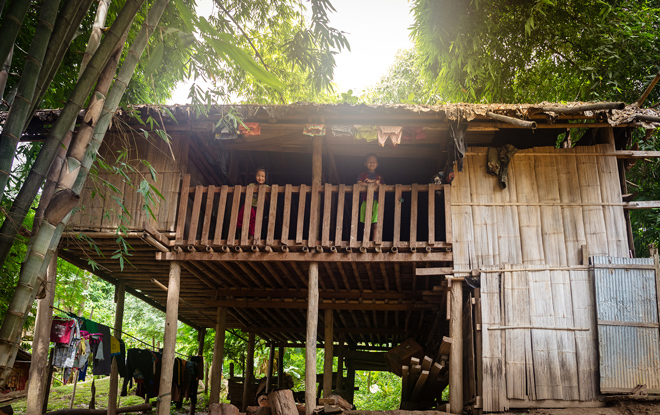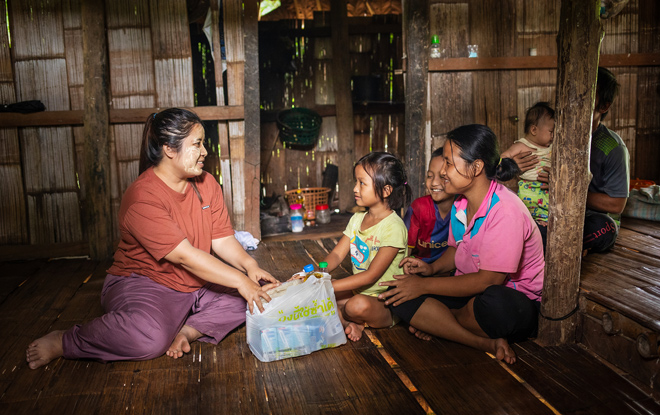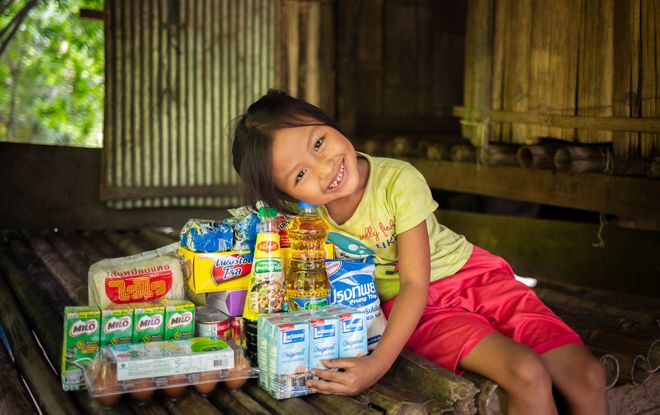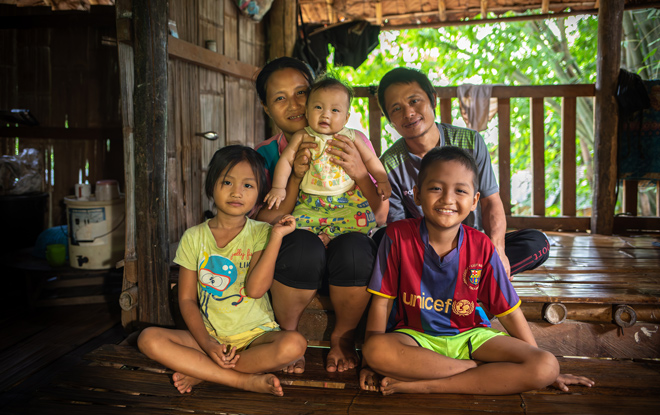Teedoh's Journey of Survival
10002 0
This interview was interrupted by the distinct sound of a bomber plane circling above the border village. Teedoh immediately grabbed her children and ran for the safety of a bunker.
As political unrest and conflict gripped the Thailand-Myanmar border in 2021, Teedoh’s life mirrored the struggles of many families in the region. Against a backdrop of skyrocketing prices, depleting food supplies, and the threat of violence, Teedoh and her husband faced a growing challenge of survival.
“I usually could make 2,000 baht (94NZD) a month, I was able to buy enough rice for about two weeks. But since the conflict started, I can’t afford any rice,” said Teedoh.
In their village on the border, Teedoh worked at a local convenience shop. Her husband took any available jobs within the village to support their three children.
The situation took a heartbreaking turn when their nine-year-old, Haekerporso, was diagnosed with leukaemia. Teedoh’s husband accompanied their son to Chiang Mai for chemotherapy, leaving Teedoh alone to navigate the harsh realities of war and care for their two other small children.
“It was the most stressful time of my life,” said Teedoh.
Her husband stayed with their son at the hospital in Chiang Mai for almost an entire year. Separated from her husband and worried about her boy, Teedoh struggled to provide for the children living with her.
“I was so hungry, and there was no rice left in our house. I cried. I missed my husband. I was so anxious about my oldest son, wondering whether he would survive. I didn’t have any money to buy even a bowl of rice,” she said.
In addition to the food crisis, Teedoh grappled with the constant threat of border attacks.
“Whenever we heard a bomber flying above the village, everyone ran. But I wouldn’t run. I stayed inside my house with my children. If anything happened, they’d be in my arms,” said Teedoh.

Caption: Teedoh’s family home; their refuge when under attack.
Everyone heard about near-by border villages being destroyed by bombers. Teedoh and her neighbours stayed alert, always ready to evacuate to a temporary shelter.
As the conflict escalated, the price of transporting goods and food supplies rapidly rose, due to strict border controls that exacerbated the situation. Compassion church partners were determined to deliver of hope for families like Teedoh’s in the village.
Cheewit, the local Compassion centre director, explains “Rice in Thailand usually costs around 270 baht (12.66 NZD) for 10 kilograms. It sells in this village for 500 baht (23.46 NZD). But during the conflict, it would sell at around 1,000 baht (47 NZD),”
The Compassion centres were committed to supporting programme participants and their families in every way they could, but the exorbitant costs incurred for transporting aid stretched them to their limits.
“Our church was always aware of the situation, and often we would quietly transport food supplies to the registered children and their families. Though, we had to pay the most ridiculously high price for transport,” said Cheewit.
Despite feeling isolated, families like Teedoh’s received quiet support from the church, as all the partners in the border region worked tirelessly to supply food to families affected by the crisis. The compassion extended by the church, and extra support from Compassion Thailand, played a pivotal role in sustaining families through the dark days of conflict.

Caption: Teedoh receiving a food parcel for her family. These parcels sustained her family during the conflict.

Caption: Teedoh’s daughter Nawmaybee sitting alongside the food received by Compassion.
Tedoh’s joy was magnified when her eldest son was discharged from hospital, and the family was at last safely reunited.
“I am so grateful for the support from Compassion. My children are safe, and they have food to eat, and I have enough nutrition for myself to feed my fourth baby,” said Teedoh.
Since then, the family welcomed a baby girl, Nawmealer, who is now four months old.

Caption: Teedoh and her husband Saydomoo with three of their four children.
Teedoh’s story paints a vivid picture of families facing tension and violence in at-risk areas. Compassion and local partners continue to navigate the situation to provide essential aid.